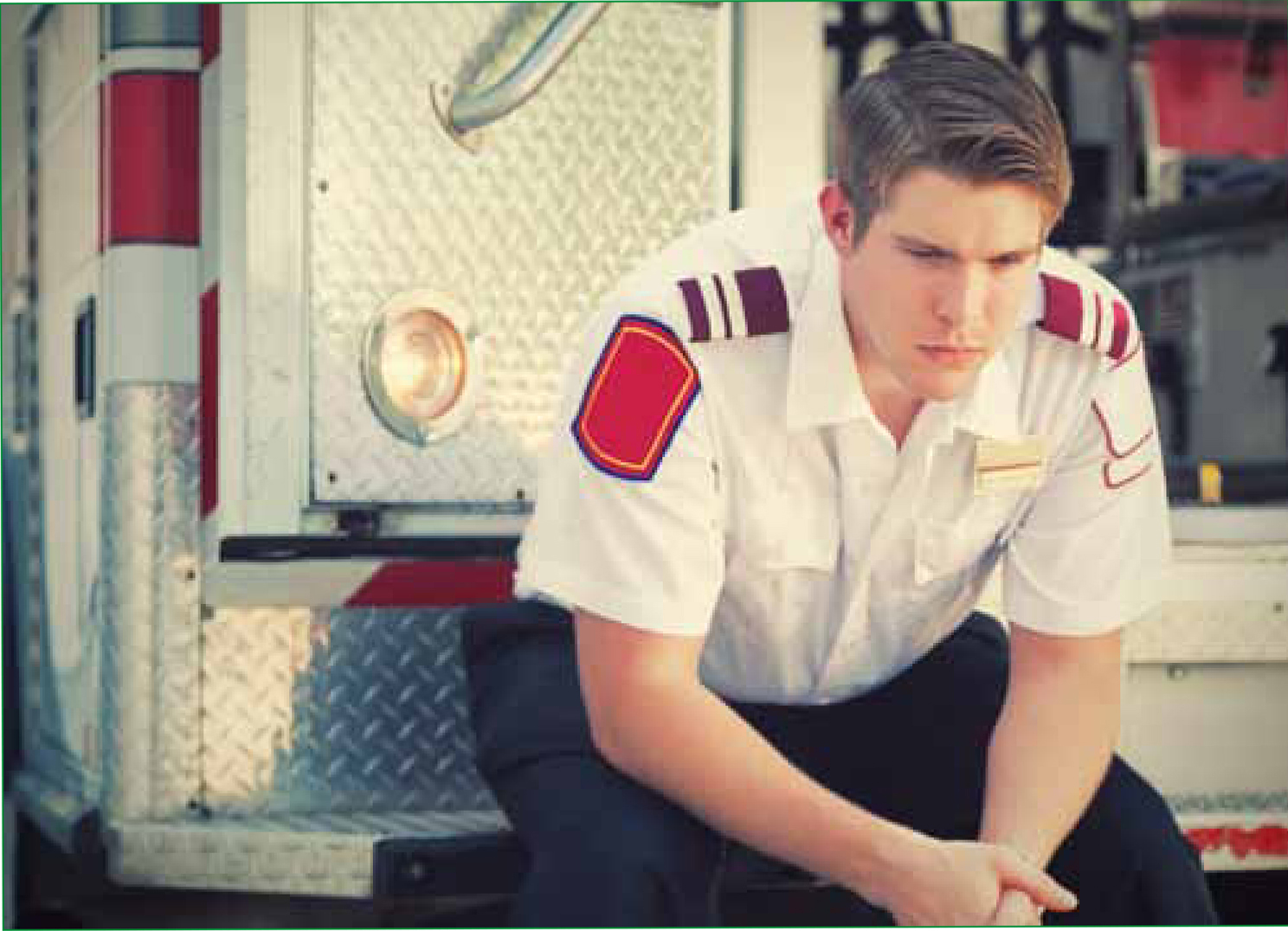Death, to die, to have died: the irreversible cessation of cerebral, brain stem, circulatory and respiratory function (World Health Organisation (WHO), 2009), welcomed by some, unexpected by others, but inescapable by all. Death has in recent years in part to palliative care and patient empowerment movements become less of a taboo subject in healthcare, and one that is being discussed more openly within paramedic practice, literature and education (Brady, 2012). A subject that cannot solely be described quite as clinically as the definition above, death permeates all aspects of societal, religious, spiritual, academic, public, family, individual and even work life. For example, Nolan et al (2010) estimate that there are around 30000 cardiac arrests outside hospital in the UK every year, with paramedics having to pronounce death in around 53–61 % of all cases (Douglas et al, 2012). During such situations it regularly falls to paramedics to care for, guide and look after families, relatives and friends in often stressful, distressing, upsetting and confusing situations (Smith-Cumberland and Feldman, 2006). If this is indeed the case, the author questions to whom it falls, to care for, guide and look after the paramedics themselves; putting forward that practitioners' regular interaction with death and the inherent nature of their job increases their potential susceptibility to a concept known as ‘death anxiety’.
Death anxiety according to Vanisri and Chengti (2012) refers to the fear and apprehension of one's own death, the loss of the self, and fundamentally man's awareness of his own death; resulting in anxiety. This anxiety, described by Yalom (2008) as a mortal wound and the costly price humanity pays for the gift of self-awareness, overshadows our entire existence with the knowledge that we will all grow, blossom and inevitably, diminish and die (Yalthat, 2008).
Emanuel et al (2004) explain that those who have life-threatening illnesses often have such death anxiety, due, mainly to them having to come face-to-face with the reality of their own mortality; arguably something paramedics also experience in their daily interaction with expected, sudden and traumatic deaths and life changing events.
‘…ambulance services, along with public bodies, universities and their funders, all need to consider the need for future research into the concept of ‘death anxiety’’
Lehto and Stein (2009) explain that the anxiety produced by having to confront the knowledge of deaths inevitability is a universal psychological quandary for humans, however none more so than for healthcare workers, whose daily task is it to deal with death. They continue to put forward that there is an increasing amount of literature that suggests death anxiety is an important contributing factor of emotional and behavioural outcomes of healthcare professionals, validating further future research into the thus far misconceived concept. This argument is congruent with Cook's (2011) review of research which highlighted how emergency nurses, albeit a small sample size, were seen to score very highly on death avoidance and fear of death subscales; results which in turn could lead to poor quality patient care through increased levels of depression, burnout, stress and other somatic complaints. Sherman et al (2010) elaborate upon this and portray the dimensions of death anxiety as including fear of pain, loneliness, punishment, loss of control, the fear of ceasing to be, and the unknown; all causing anxiety, which for some may be latent or misunderstood and conflated with other personal issues. Furthermore to this, Routledge and Juhl (2010) argue that the awareness of one's eventual demise cannot simply be avoided, mainly because life is ever full of situations that render salient human fragility; arguably none more so than within the emergency, unscheduled care and military services. Couple this with the normal everyday civilian situational cues paramedics undergo that heighten everyday death awareness, such as the death of a parent, break up of a relationship, personal trauma or significant life changes, paramedics appear to be increasingly susceptible to the self esteem issues, depression, anxiety, sleeplessness, nightmares, acute fears of the dark, existential crisis, burnout and stresses that are all related to death anxiety.
To conclude, although the fear or anxiety of death is known not to be limited to those working outside of healthcare settings with little death experience, it would appear that there is actually increasing evidence to suggest that those that do work within healthcare settings, are more susceptible to the adverse effects of death anxiety; and arguably none more so than paramedics. The author recognises the paucity in research related to this concept in most areas of health care, and how possible death desensitisation and gallows humour may appear to ameliorate adverse effects; however actively encourages paramedics and educators to be open minded about the long-term effects that exposure to obvious displays of mortality and human fragility can have on overall wellbeing, mental health and family life. Melo and Oliver (2011) suggest that death anxiety can interfere with health care workers relationships with patients, patients' families, as-well-as their own, and significantly increase levels of burnout; yet there appears to be little emphasis upon this quandary within the literature and within practice, to explore if recognition of such a concept could actually be beneficial. This author suggests that while death may not be a subject of popularity in mess rooms and lecture theatres across the country, only through open discussion and candid debate will such concepts fully come to light; before which paramedics continue to go relatively unsupported with their possible death anxiety issues, which may only worsen in later career life and retirement; but could equally be proven to be beneficial once uncovered, discussed and approached. Employers of paramedics such as ambulance services, along with public bodies, universities and their funders, all need to consider the need for future research into the concept of ‘death anxiety’ and lift the veil on a potential issue that comes hand-in-hand with the one guarantee all humanity share; death.

